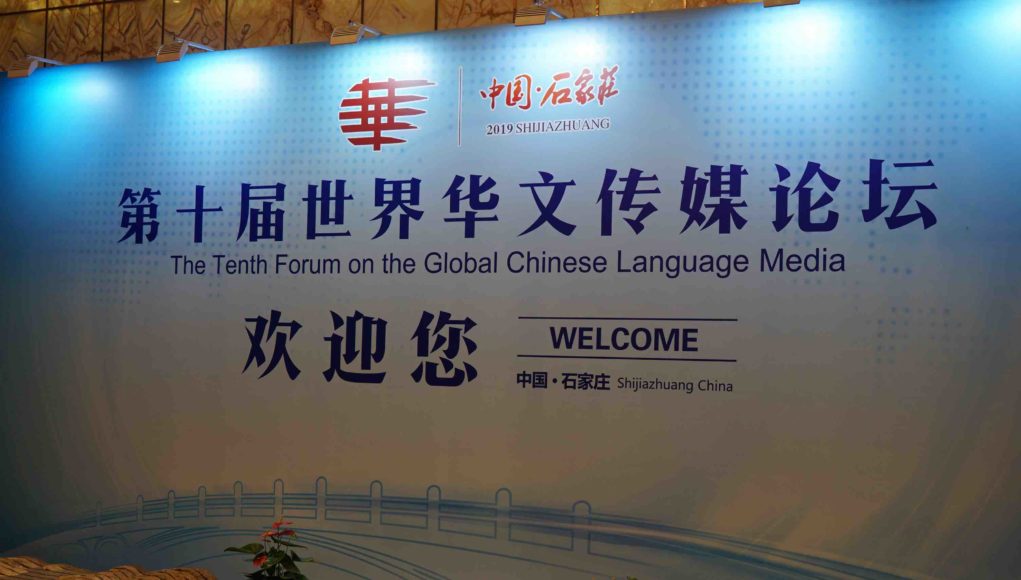(Shijiazhuang, Hebei Province, China, Oct 12, 2019) More than 600 Chinese language media representatives from all over the world are in China for a forum that calls to report the country to the rest of the world in a more constructive way.
The forum, called the Tenth Forum on the Global Chinese Language Media, is being held in Shijiazhuang, the capital city of Hebei Province, where the CPC’s former headquarters was located and the Chinese government has been piloting the country’s new model of economic growth.

Zhang Xinxin, editor-in-chief of Chinese News Service, the biennial forum’s co-organizer since 2001, said in his keynote speech that the Chinese language media are facing some downturns globally but the rise of China offers a new opportunity for them.
“The traditional Chinese newspapers and broadcasting services in Southeast Asia are undergoing some impact,” said Zhang, noting that the daily sales of Singapore’s mainstream Lianhe Zaobao decreased from 137,100 copies in August of 2017 to 126,400 copies a year later.
“As China has just celebrated its 70th Anniversary of founding, the Chinese language media should see a good opportunity for their future development, ” he added.

Several attendees of the forum told Fortune Times that they have witnessed the improvement of the Chinese social status in different parts of the world.
Li Xia, editor-in-chief of the Belgium-based Euro Dragon News, said: “When I first came to Belgium 18 years ago, the local people asked me ‘Are women not allowed to give birth to girls in rural China?’ among other crazy questions. Now, one asked me those questions any more. Instead, they are more interested in China’s economic development and opportunities.”
Wu Xiaorong, founder of the weekly Chinese-language publication in Argentina whose Spanish name is “Horizonte Chino”, said that the number of Chinese people in the South American country has increased from around 50,000 to more than 200,000 in the past 20 years.
“As with the rise of China, the social status of Chinese people in Argentina is also on the rise. Although there are still negative comments to the Chinese, they mostly refer to individual behaviors, not the Chinese people as a group.”
“If the Chinese people hope to earn better recognition in foreign countries, they should become a natural part of the local society instead of isolating themselves. Isolation will only lead to suspicion or even mistrust,” he added.





































